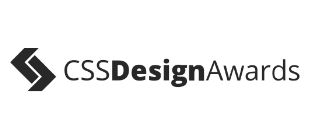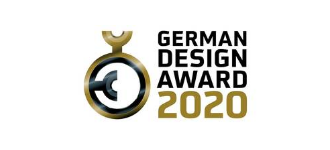![]()
For years, companies, especially medium and large corporations, began an unprecedented transformation conditioned by technological innovations. Internet was the first major protagonist of this change, and now, a few decades later, it is mobile applications that are acting spearheads. Companies, regardless of size or sector, have been incorporating these apps into their internal processes, in the management of their business. Miami, the beach capital of USA is already seeing a huge growth in mobile apps sector and Zazz is certainly providing excellent services here.
We listen to our clients, arrange meetings and then develop products that not only satisfy our customers’ but also play a vital role in their growth.
Agile development is the key to secure productivity and efficiency. We develop products that are innovative and competitive.
We assign dedicated development teams to projects and make sure that one team works on just one project to ensure quality.
We are available 24/7. You can contact us through email, text messages or just give us a call. We are available anytime anywhere.
You should not worry about the loss of any data. We know that data is very important and take good care of it.
While working with us, you need not worry about leaks and security. Protection is our topmost priority.
Continuing the differences between hybrid and native applications, it is time to talk about the cornerstone of these differences. And it stands out, without a doubt, the enormous ease and versatility that hybrid development presents when it comes to exporting applications to different platforms. While with the development of native applications we need to program them for each target language (with the consequent time consumption and increase in associated costs), with hybrid applications we will only have to develop our software once. Then, we can port it to the destination platforms we want.
Without a doubt, the use of instruments such as Phone gap has been decisive, which facilitates and simplifies this work, both in terms of development and the export process itself.
The fact that, if we work with native applications, we will have to carry out a development for each target platform to which we want to take our software is decisive. In practice, it is estimated that the development of native applications can cost more than triple that of a hybrid application.
In addition to the savings that are most easily exported to different platforms, the simplicity of languages such as CSS, JavaScript or HTML makes developments generally very fast. This, coupled with the use of tools such as MobileUI or Phonegap that help to simplify and accelerate the development process enormously (and that in many cases are tools without a license cost), leads to hybrid applications being the option with the lowest cost for development.
Once again in this regard, the development of hybrid applications remains with the first position. Being based on technologies such as HTML, JavaScript or CSS, these applications have a huge number of developers who perfectly master these languages. This is due to the fact that, on the one hand, they are widely used programming languages, and that they are also simple to learn and master, as I have already mentioned talking about their learning curve.
In the case of the development of native applications, today we can also find many resources that dominate this programming. But, of course, a person who dominates for example the development for iOS does not have to dominate that of Android, so personnel costs can be higher.
It is also essential, if we talk about the differences between hybrid and native applications, mention performance. Regarding the performance of applications developed natively or that of hybrids, today the truth is that they are very similar and it is difficult to notice differences that tell us if the application was developed in one way or another.
In the past, the difference in performance between them was much more palpable, with the balance notoriously leaning towards native applications, whose operation was considerably better than that of the hybrids. However, for some time (specifically since version 3 of Phonegap), the performance is tremendously similar, the transitions are smooth, the queries are fast, and there is no problem in the operation of hybrid applications.
Only in the case of applications whose graphic load is high, and that require intensive use of the graphics engine, 3D graphics, etc., can the performance of the native applications be really superior.
When we talk about being able to access features of the device, of course , native applications have full access to them (or, rather, all the access that is allowed to have) and are the option that offers us maximum freedom. For example, we can access without problems the GPS, the camera of the device or other accessories, in addition to the graphic libraries, the use of push notifications (very important), data caching to be able to work without an Internet connection, etc.
Hybrid applications, on the other hand, may not have access to all these features, although their possibilities are increasing and their limitations are less.
Here it would be important to specify that, even if they are not developed natively in a language, certain frameworks allow us to create native code that should work exactly the same as if it were the native code of a device itself (because, in fact, it is). This is the case of Appcelerator, for example. When creating applications with native compiled code, you can do the same and with the same response time as if it were a native app, provided that Appcelerator allows you to do so.
In any case, it is important to emphasize that, for some markets, it is essential that the application has been developed in native language if you want to be able to advertise it in the application market of that operating system.
To finish exposing some of the differences between hybrid and native applications, we will talk about how “beautiful” an application developed natively in the final destination language can be, compared to a hybrid application, taking into account that the programmer in each case dominates That kind of development.
As you can imagine, in this sense the hybrid applications cannot surpass the native ones, because the native ones have by default access to all the necessary components of the system to be able to offer the best possible experience to the user.
However, more and more, hybrid applications have managed to take advantage of HTML5 and CSS3 to simulate all kinds of advanced behaviors, offering an aspect of native applications. In addition, the WebView provides a series of controls natively that we can use as if we were programming directly in the native language of the platform.
Therefore, in summary, we could say that the native applications are the best potential user experience we can offer, but the hybrids are cutting their ground in this regard.


Number 1 app
development
company for
Fintech/Startup


Top blockchain
app development
company


Number 1 Mobile
app development
company


Top mobile app
development
company
Zazz is a leading mobile app development company in the USA. We offer a wide range of software development services, including Android app development and iOS app development.
Zazz always keeps pace with innovative technologies. This makes us the best mobile application solution providers.







Read our blog on topics worth exploring
and get technological insights
that are sure to amaze you.
